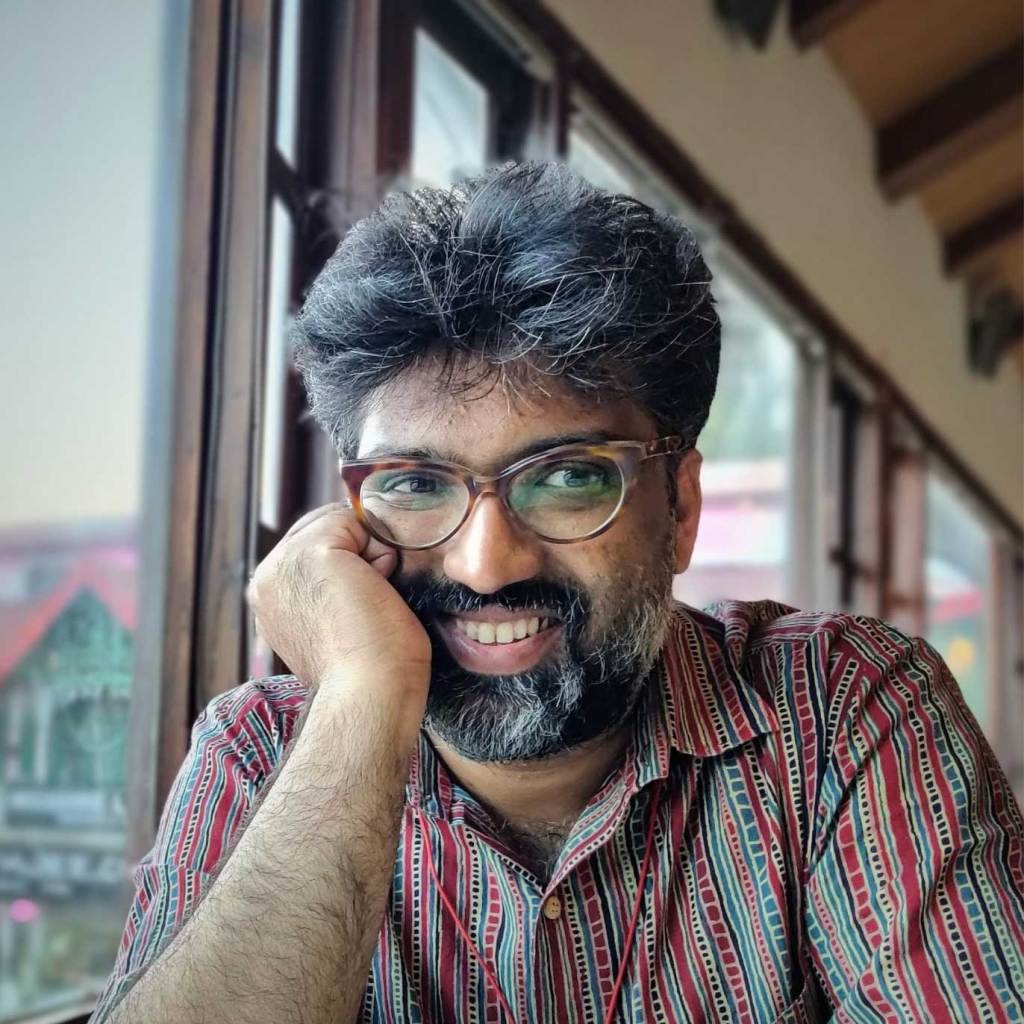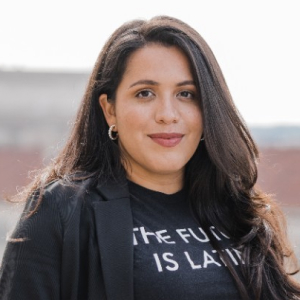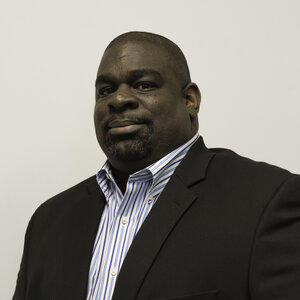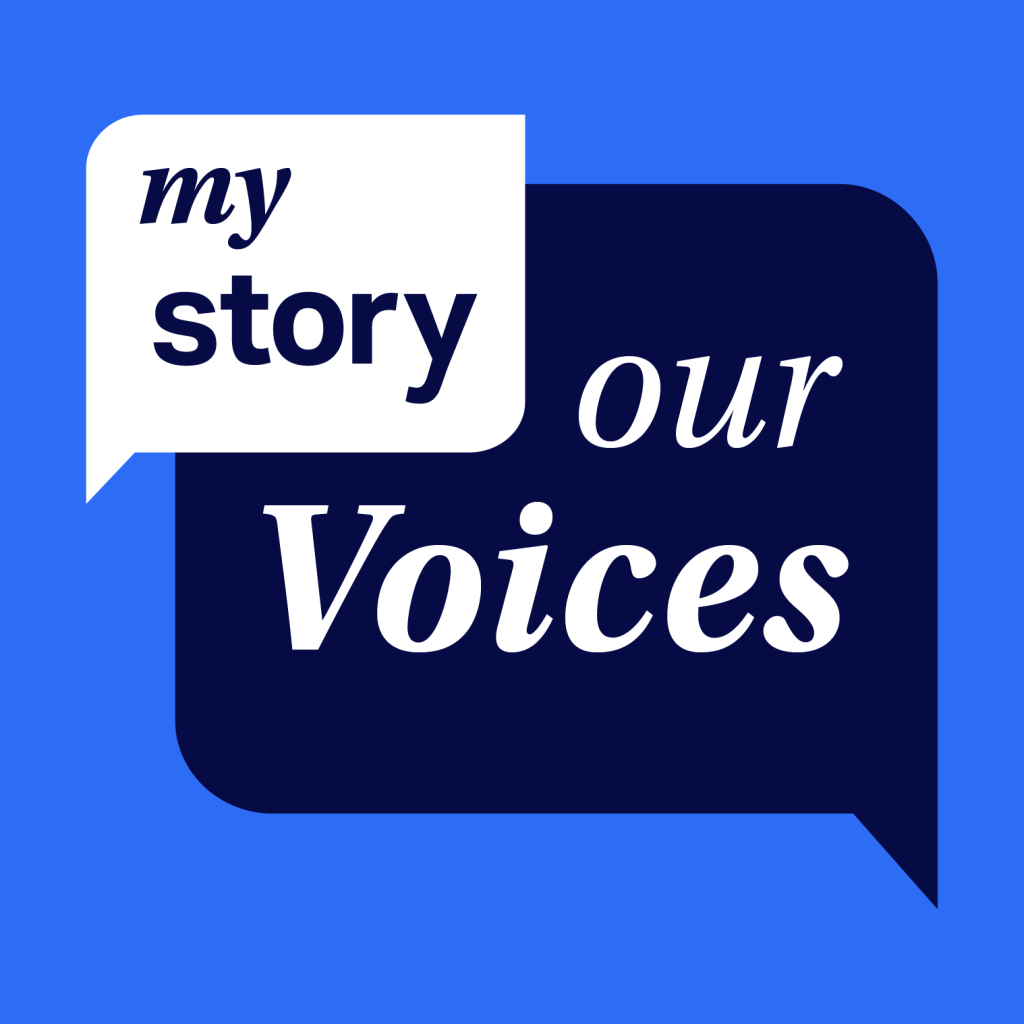Aritra talks about the importance of being true to yourself
Join hosts James and Myriam as they sit down with guest on this episode of My Story Our Voices, an NIQ DEI podcast, Aritra Kanjilal to hear his story about how being true to himself brought happiness.


Aritra Kanjilal – Kolkata, India
Sr. Manager, Product & Tech, BASES
Aritra is a gay, non-binary, agnostic, pro-choice, food-enthusiast, Bengali from Kolkata who studied Statistics and is currently working as a Product Lead at BASES NielsenIQ. Aritra was one of the founders of Pride South Asia ERG at NielsenIQ (Nielsen at that point of time) and led the ERG in the region from 2019-2021. Hosting 20+ awareness and inclusion campaigns, Aritra was instrumental in driving policy and facility changes to make his organization more LGBT+ inclusive and in introducing health benefits for same-sex partners as well as trans individuals. For his work in this space, he was featured in the global OUTstanding Top 100 LGBT+ Future Leaders 2020 and was a nominated as a finalist for Out& Equal 2020 Outies Awards and the 2019 DEI Champion of Change Award.

Angel Diaz Ospina – Washington, D.C., USA
Sr. Manager, DEI Talent Programs
Angel has been at NIQ for 4.5 years. She enjoys social dancing, hiking, traveling, and DIY projects. She also has an interest in civic engagement volunteer work, immigration advocacy, diversity & inclusion, and mentorship.

Terrance Bacchus – Cincinnati, Ohio, USA
Vice President, New Customer Success ELP
Terrance has been with NielsenIQ for 2 years after 20+ years at General Mills. His interests include giving back to the community, inspiring and coaching young people to seek financial empowerment by being resilient and making smart choices.
Aritra recommends the following:
Book recommendations: Factfullness, Dancer from the Dance, Cobalt Blue
Series recommendations: Pose, Made in heaven, Special
Movie recommendations: The Danish Girl, Memories in March, Nagarkirtan
Transcript
The views and opinions expressed in this podcast belonged to the individuals who shared them and do not necessarily represent Nielsen IQ. Note that this podcast discusses sensitive topics that may be triggering for some. For more information specific to this episode, see the episode description.
Laura Batien: Hi everyone and welcome to my blank story. My name is Laura Batien and if this is your first time tuning in then let me tell you what this podcast is all about. In a nutshell, it’s about stories. Your stories. We think stories are important because when we tell them, we open the door and allow others to see the experiences that shaped us, that challenged us and helped us grow. By doing this, we can create a culture where open dialogue is encouraged, and we can have the space to discuss important topics in a transparent and courageous manner. So minimize that e-mail tab, mute your chat, and take a little break to listen to a Nielsen IQ story.
Myriam Vidalon: Hi everyone. Thank you so much for tuning in to my Blank Story podcast today. My name is Myriam Vidalon and I worked as a Chief Diversity Talent and Culture Officer at NielsenIQ. I’m originally from Peru. I have two children, two kids, and I live in Tampa, FL. It’s such a joy to be here today, and I’m not back here by myself. I’m here with my co-host, James. James, do you want to introduce yourself?
James Anderson: Hello, Myriam. How are you today?
Myriam Vidalon: Fantastic, & you.
James Anderson: Pretty good. My name is James Anderson, and I am a senior analyst here in the Toronto Markham office. I am originally from a small town in southwestern Ontario. I grew up on a farm and I am now very happy to be a city dweller and. My pronouns are he, him and his. Uh, now Myriam, I know that our guest today is going to be talking a little bit about journey to self-discovery, self-acceptance and authenticity. I just wanted to ask you , either in work or in life, how do you think being, being not only being yourself, but also being able to be yourself in your surroundings, how important do you think that is and how do you think it changes your perspective on things in your life?
Myriam Vidalon: Thank you for asking, James. I will tell you that one philosophy I have on how I lead my work and how I lead my teams is centered around humble confidence. And that’s the ability to be confident enough in my own abilities without losing track of the of the idea that I can be wrong and that I am wrong, right? But you can only achieve this humble confidence if you truly embrace yourself. If you embrace who you are, where you come from, what you care for, and you align on that alignment between who you are and what you’re here to do at work and also at life. So I truly believe that today’s topic is an amazing way to unlock your own life in your own potential. So I’m really looking forward to it.
James Anderson: So that’s a great answer. Yes, absolutely. Shall we introduce our guest?
Myriam Vidalon: Absolutely. Let me introduce Aritra Kanjilal. Aritra is a gay nonbinary agnostic pro-choice food enthusiast Bengali from Kolkata who studied statistics and is currently working as a product lead at basis NielsenIQ. Aritra was one of the founders of Pride South Asia ERG at NielsenIQ and lead the ERG in the region from 2019 to 2021, hosting 30 plus awareness and inclusion campaigns. Aritra was instrumental in driving policy and facility changes to make his organization more LGBT+ inclusive and introducing health benefits for same-sex partners as well as trans individuals. As you can tell from this bio, Aritra has made amazing contributions to the NielsenIQ culture and for his work in this space he was featured in the Global Outstanding Top 100 LGBT+ future leaders 2020 and was nominated as a finalist for Out and Equal 2020 Outies Awards in the 2019 DEI Champion of Change award. Currently, Aritra is one of the mosaic ERG leaders for Asia Pacific. Excited, very excited, to introduce you to Aritra. Aritra please tell us about your story.
Aritra Kanjilal: Hello I’m Aritra from Kolkata and in 2020, I decided to stop being a man. I was not becoming a woman either, and this is exactly where my mum says dear, it seems like you are saying something smart but I can really use some explanation. So here you go. My birth year is 1980. And growing up in India, we were never taught the difference between biological sex and gender identity. I learned about gender identity much later when I was already a working adult. Now, as per the definition, gender identity is what you feel inside. Do you feel masculine? Do you feel feminine? Is it a combination of both, or is it something totally different that you feel? And since the time I learned about gender identity, the question that kept on bugging me is what do I feel inside myself? And goodness, it was such a tricky thing to answer, the trickiest part being figuring out what qualifies as masculine or feminine in the first place. How do I figure out if I’m feeling feminine or masculine at a given point, just the way I know when I feel hungry, or sleepy, or angry? Don’t get me wrong, I’m not saying I do not understand what society calls masculine or feminine. It’s just that when it came to my own feelings and emotions, I was not able to label them one way or the other so I finally decided to come out as a nonbinary person. But that was not the end to it. As soon as I came out, questions started pouring in. If you are nonbinary, why are you still using him as pronouns? Why do you continue to dress the same way? Why are you not shaving off your beard? It is such a manly thing. I patiently answered some of these questions and then some made me wonder if I was doing something wrong. And I figured no. I’m not doing anything wrong. I know myself the best, and no one else can define my identity better than myself. And trust me, that was so empowering and liberating not to be restricted by any stereotypes associated with nonbinary identities. We humans, I feel love boxes. Possibly because it gives us a sense of clarity and control. And if ever someone comes out of a box saying, hey, I don’t belong here, some of us simply want to put them back in another box and expect them to follow the norms of that other box. But we are so much more than that. I really look forward to a world where we are no longer treating ourselves as items in different boxes, but maybe more like pebbles flowing through a river like where each has its own unique shape. Each made-up of different minerals and each changing shape with time as it rolls through the river. And that’s my story.
James Anderson: Aritra, thank you so much for sharing your story. We appreciate you opening up about your experiences and sharing them here on the podcast. Building on some of the things that you said, I just wanted to ask, how do you think that your experience, this journey that you’ve been on has changed your perspective on life really?
Aritra Kanjilal: Well, it’s very interesting and as Myriam was talking about humble confidence, it was so relatable because the biggest impact is of course how every single time you successfully come out that basically boosts your confidence. And trust me when I’m saying this, even in this podcast as we chat here that’s making me more confident about myself and that’s possibly because somewhere it is telling me that there are allies out there. People who are willing to see and understand a part of me which has been invisible for many years, almost 30 years. I’m 34 years old now and when I see what I’ve also realized is that it has given me this to say. You know what? I don’t know it fully yet. I’m figuring out. That is also confidence. Like you, I do not feel the pressure to be the expert or be sure about things. I appreciate the journey more and that is not just restricted to my life or my identity, but even the work that I do as a product lead when I’m building new products or when I’m trying to solve a problem for a client, or trying to answer a question that a client has ’cause, I’m not going to just be a fake expert. I’m going to say that, hey, you know what? I’m going to figure this out because I do not know this fully yet. And I think that has been the biggest impact of me coming out as nonbinary on how I see things in life and walk in general. I hope that makes sense.
James Anderson: I just wanted to ask how what about these. How do you feel then about the the sense of let’s talk about about the the the joy, what does it bring you to live your authentic self, to be able to live your authentic self every day after you mentioned, you know, the times when you weren’t able to do that?
Aritra Kanjilal: Well I think like what it does is it takes away the pressure of you hiding things. Or to be honest, like in my case, like as I mentioned in my story, I was not even hiding things, I was just simply not aware of certain aspects of my own identity and it is liberating. It is unable to like speak with more confidence because I feel that I know myself better now and it’s hard to describe how exactly that feels in words, but It’s kind of what euphoria would describe I think.
Myriam Vidalon: Aritra, thank you so much for sharing your perspective, and I couldn’t agree more with you. I’m 100% you know, your response is 100% aligned with what I believe dearly makes for a great leader is having that humble confidence to know that you can succeed, that it’s OK to be wrong, but you know who you are and you can do it and you can make it happen, and that’s truly remarkable. Now we talking, tell us a little bit of how have you felt the support at NielsenIQ as you go through this experience.
Aritra Kanjilal: Oh yeah, absolutely. Like, to be very honest, for all I know I possibly would have taken way way way longer to come out as a nonbinary person if not for a bunch of very very dear friends at NielsenIQ who are like scattered all across the globe like some in Istanbul, some in Europe, some in UK, like in some in India. I think the biggest way in which Nielsen IQ has helped me with my journey. By giving me this global network through our Ergs where I could find these like minded people to bond with. In all honesty, I actually started considering coming out during one of the prep calls for a webinar that we were doing back in 2020. And this very diverse group of friends, which I mentioned from work, which includes some of my peers, some of my team members, some really very senior leaders, but they no longer feel like base senior leaders they’re more like friends. Some some of them identify as LGBT, plus some of them are allies. Give me a lot of courage by chanting almost 24 cross seven. You can be you, you can be you, you can be you. And that is immense, but at the same time. They were like my testing ground, so I actually first came out to them. And? I asked. If I see this to people, will they understand? Will that make sense? And they were my testing ground. It was very similar to testing a new product with basis before the actual launch, you figure out like will this walk or not? And you figure out OK like if I’m trying to explain why I continue to use my he him his pronouns even after identifying as a non binary person will that answer tell people enough so that they would stop questioning. So I think, like that has been the biggest impact of NielsenIQ in my journey, By providing that network through our ERGs.
Myriam Vidalon: I’m. I’m so glad to hear that it’s so important to have a strong enough network, and I know you and this network of leaders across the globe really also launched the pronouns campaign, which helps so many people, including myself. It was the first time that I put on my pronouns that she, her, hers, to make sure that we can educate each other and we can make this an inclusive workplace. So really glad to hear the about the impact the environment has had in your journey.
James Anderson: And building that arena, I just wanted to ask you, you touched a little bit on what you touched a lot actually on the people who were there for you, many who were here at work, who were colleagues, peers, some who were LGBT+ and some who were allies and just just for our listeners come out. What are some of the things you think that anyone who wants to be supportive of someone else’s journey, do you have any advice for them? What what sorts of things can they say or can they do in order to let a person know that they are supportive, and they are, they’re willing to be with you on the journey?
Aritra Kanjilal: The most critical thing is to possibly make that switch from making assumptions. Paying attention to what people are saying about themselves. I’m not going to get into like 5 tips or like 10 things you can do to be a good ally because like people can find those things on the net, but I think like what becomes more important for like day-to-day interactions is basically paying attention.I’ll give you a very real life example. I joined a call a little late where people were already talking about some good work I had done. And one of the members said, here comes the man of the hour and that just, like, made me feel a little strange. It was such a mixed feeling because on one side you know that this person is really cheering for you so you don’t want to spoil that, but at the same time, this person is misgendering you, possibly unknowingly. And it’s not just limited to sexual orientation or gender identity. It can be other parts of your identity as well, I feel. Possibly given like your family values or cultural norms in your countries. One possibly says “we did this” more often than “I did this”. I myself do that. And I have seen people interpreting that as a sign of weakness and questioning, OK, why are why is this person saying we did this, we did this? Does this person do nothing by themselves? That needs to change, and that can only happen when we are making a very conscious effort to. Paying attention to what people are saying, where they’re coming from rather than. Making assumptions based on things that we see or hear in at the reverse interaction or yeah. So it’s all the more important in this virtual setup I seen where we do not get to interact in person anymore and the coffee breaks are less frequent, not completely gone, thankfully, but less frequent, it becomes all the more important.
James Anderson: Absolutely, I agree 100%. In terms of anyone who’s out there who may be looking or may be looking for a positive, reinforcing, supportive environment and looking to work in what, what sort of things would you recommend for people to look for when they or what questions should they ask in interviews, or what sort of signals, clues, signs can people look for when they’re approaching a prospective employer?
Aritra Kanjilal: Oh Yep, that’s a really important question. And I was not aware of this when I joined NielsnIQ. It was Nielsen back then, back in 2011. I was just like fortunate enough to find like this amazing place and stayed on. But I would say two things. First of all, figure out the policies and benefits because that tells you a lot about what that company stands for, what it believes in, whether they have an anti discrimination policy which clearly mentions sexual orientation, gender identity, gender expression, check if they they have if they have dress code policy, if that’s gender neutral and look for those things and that part is easy. That these are like things which are their own people, which you can ask for. The second part that I would say is basically like try to assess the culture and look beyond whatever there is there in the branded materials. So do not just like form an idea about an organization just by going through the website and what they claim their culture to be. Right. Ask to be connected to real people like LGBT+ employees if possible from the organization. Just say “hey. can I just talk to someone just to hear how their experience has been?” If not, just ask the recruiter themselves if they have been part of any initiatives and what has been there typically from such awareness sessions or campaigns and that will also give you a sense like how involved the organization as a whole is. So I would say those are the two things now, as I said. The top is tricky to assess, so possibly you need to spend a little more effort and figuring that out. but it’s as important as policies and benefits.
James Anderson: Thank you so much for joining us today and sharing your story. It has been truly, truly inspiring. And thank you to all of you for tuning into yet another episode of My_____Story, a DEI podcast here at NielsenIQ, thank you for listening. We look forward to the next time.
Aritra Kanjilal: “I’m not doing anything wrong. I know myself the best and no one else can define my identity better than myself. And trust me, that was so empowering and liberating not to be restricted by any stereotypes associated with nonbinary identities.”
Laura Batien: Hey all, it’s Laura again. We hope you enjoyed this episode of My____Story. Tune in next time to hear more stories from the NielsenIQ community. Thank you to our producer, Jessica Arledge and our editor, Rachel Jilek.

